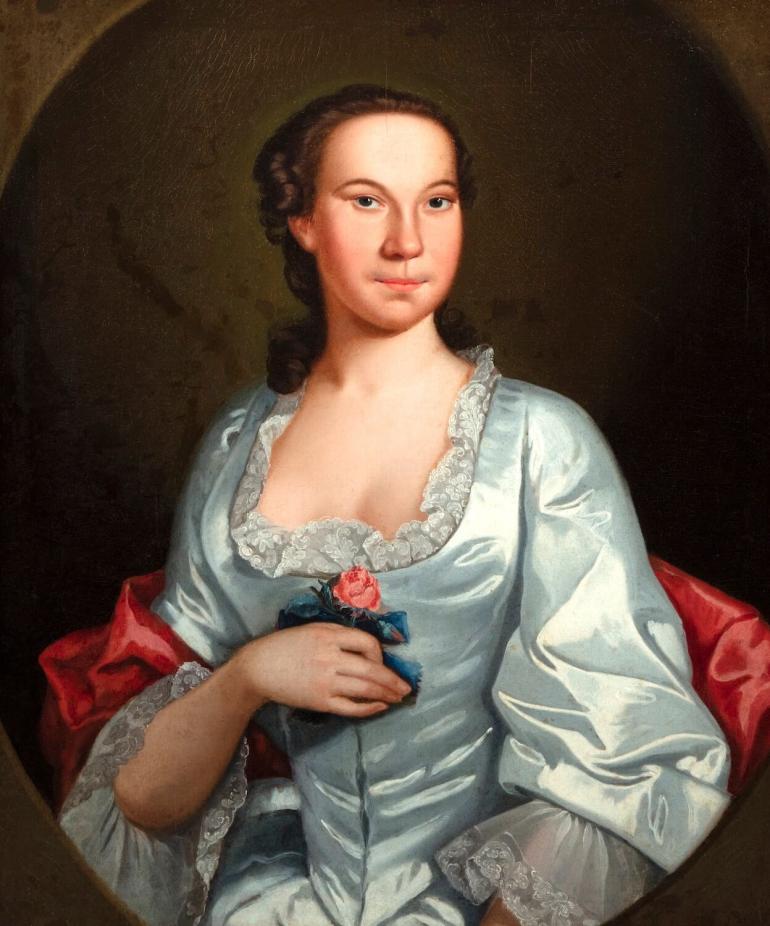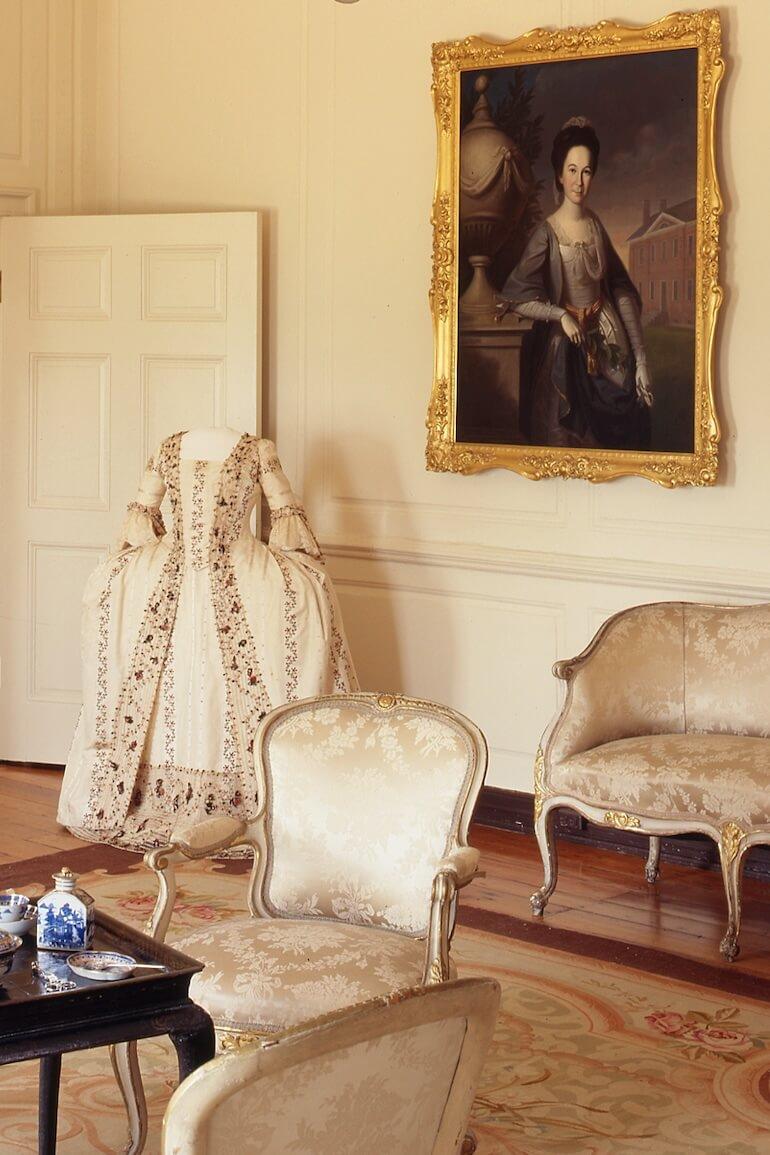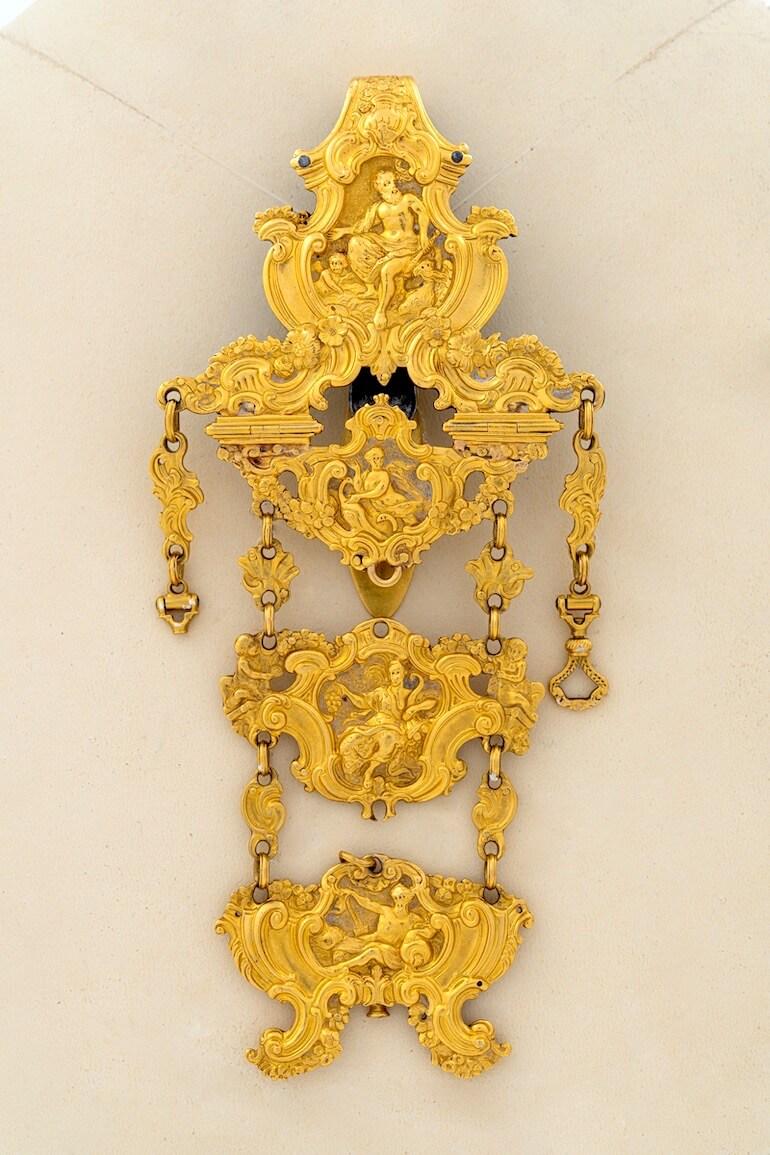She was the eldest of five children born to Mathew Tilghman and Anna Lloyd. Margaret was raised at Rich Neck Manor on the Eastern shore. At the age of 21, she married her cousin, 40-year-old Charles Carroll, Barrister.
She took an active role in the management of her several homes, including renovations and interior design at her Annapolis townhouse, Mount Clare, and another farm called The Caves. An avid horticulturist, she is credited with helping to design Mount Clare’s exquisite gardens and its two rare, heated greenhouses. She corresponded with Gen. George Washington, giving him technical advice and starter plants for his Orangery.
By all accounts, she was a gracious hostess who generously entertained family and friends, including George Washington and his wife Martha, other leading citizens of the colonies, and French officers during the revolution.
In May 1771, the Barrister and Margaret visited England for 18 months. Charles was hoping to cure his “fever and Ague” (possibly malaria) at English mineral baths, and Margaret was experiencing her first trip to London. Despite attending several court functions, including Queen Charlotte’s birthday ball, Margaret apparently favored her life in Maryland.
"I was not surprised to hear she prefers ye domestic amusements of Maryland to ye vanities of St. James. The society of a few choice friends is worth all ye pomp & emptiness of a court."
Charles Carroll of Carrolton, writing to the Barrister,December 2, 1771.
She may have given birth to a set of girl twins in 1779, but neither child survived infancy.
An able manager, she helped direct assignments for the 34-39 enslaved workers and indentured servants who kept Mount Clare running and held the keys to various pantries and storehouses on a gold chatelaine. She also showed great business acumen managing Mount Clare in trust for her nephew and increasing her own wealth during more than 30 years of widowhood.




